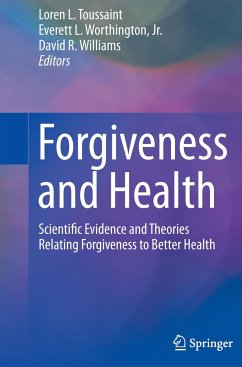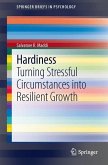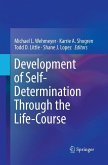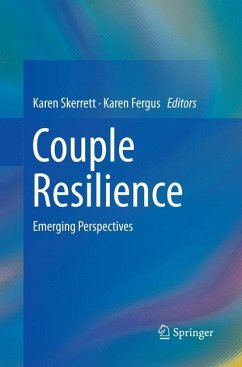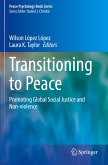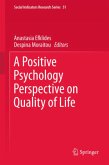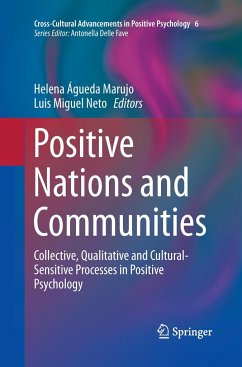This volume collects the state-of-the-art research on forgiveness and mental and physical health and well-being. It focuses specifically on connections between forgiveness and its health and well-being benefits. Forgiveness has been examined from a variety of perspectives, including the moral, ethical and philosophical. Ways in which to become more forgiving and evolutionary theories of revenge and forgiveness have also been investigated and proposed. However, little attention has been paid to the benefits of forgiveness.
This volume offers an examination of the theory, methods and research utilized in understanding these connections. It considers trait and state forgiveness, emotional and decisional forgiveness, and interventions to promote forgiveness, all with an eye toward the positive effects of forgiveness for a victim's health and well-being. Finally, this volume considers key moderators such as gender, race, and age, as well as, explanatory mechanisms that might mediate links between forgiveness and key outcomes.
This volume offers an examination of the theory, methods and research utilized in understanding these connections. It considers trait and state forgiveness, emotional and decisional forgiveness, and interventions to promote forgiveness, all with an eye toward the positive effects of forgiveness for a victim's health and well-being. Finally, this volume considers key moderators such as gender, race, and age, as well as, explanatory mechanisms that might mediate links between forgiveness and key outcomes.
The world being what it is, there is no shortage of circumstances where the worst of human behaviors provide the opportunity for one of the best, namely forgiveness. Philosophers have long wrestled with the question of whether forgiveness is better for the forgiver or the forgivee. Remarkably, this question has become a subject of careful scientific research in recent years, and this excellent, important book presents the first thorough overview of the subject. Naturally, the answer to the question, "Is forgiveness good for you" is mighty complicated.
Robert M Sapolsky
John A. and Cynthia Fry Gunn Professor
Departments of Biology, Neurosurgery, and Neurology and Neurological Sciences
______________________________________________________________________________
How we experience life's challenges can profoundly affect our well-being. In this outstanding book, Toussaint, Worthington, and Williams open our eyes to the power of forgiveness, which may be one of the most important tools we have for reducing disease and improving human health. Their review of the subject is the best to date and a must-read for scientists, practitioners, and laypeople alike.
George M. Slavich
Director, Laboratory for Stress Assessment and Research
Cousins Center for Psychoneuroimmunology
University of California, Los Angeles
______________________________________________________________________________
burgeoning field of inquiry will want to have this book on their shelves.
Christopher G. Ellison
Professor of Sociology
Dean's Distinguished Professor of Social Science
University of Texas at San Antonio
______________________________________________________________________________
This volume is cutting edge. All that is currently known on forgiveness, unforgiveness and health is covered between these covers. A remarkable compilation of chapters that review research findings on the relationship between forgiveness and medical and mental health. A book of great significance in this emerging area.
Leslie Greenberg
Professor-Department of Psychology
York University
______________________________________________________________________________
Forgiveness and Health is the definitive volume on the role of forgiveness in human health. Scholarly, creative, and user-friendly, the chapters in this book are likely to steer the field for many years to come.
Michael McCullough
Professor-Department of Psychology
University of Miami
______________________________________________________________________________
This book is a comprehensive and carefully crafted resource for researchers, teachers, students, and anyone looking to better understand the science of how forgiveness can improve one's health. Leading contributors offer deep insight and useful recommendations about forgiveness and well being. This book is the best answer to date of the important question, "how and why is forgiveness good for you?"
Frederic Luskin
Director of the Stanford Forgiveness Projects
______________________________________________________________________________
Research on forgiveness has seen an explosion of interest and activity over the past several
years. In Forgiveness and Health, Toussaint, Worthington and Williams have done the burgeoning field an important service by bringing together top scholars in the field to assess the current state of theory, measurement and findings on the topic. As important, their volume provides crucial insights for helping to guide future research efforts on forgiveness and its consequences. There is little doubt that Forgiveness and Health will be an essential resource for scholars in the field for years to come.
Marc Musick
Professor, Department of Sociology
Mike Hogg Professorin Liberal Arts
Senior Associate Dean, College of Liberal Arts
______________________________________________________________________________
This volume signals a coming-of-age of forgiveness theory, research, and practice. Written by leaders in the field, the chapters in Forgiveness and Health report on the latest advances in the definition, theory, and measurement of forgiveness. In rich detail , they describe how forgiveness is fully interwoven into physical health, mental health, culture, and context. The volume cements the vital role of forgiveness in efforts to understand and enhance health and well-being. Highly recommended for researchers and practitioners alike.
Kenneth I. Pargament, Ph. D.
Professor, Department of Psychology
Bowling Green State University
______________________________________________________________________________
This volume provides a welcome and comprehensive approach to understanding forgiveness and its role in health. It is well-known that social ties are key determinants of good health and well-being, and that social isolation is a risk. But there are strains in every relationship, and a need for restoration.
Forgiveness is a mechanism for the repair of social relationships -- and it is available to everyone.
Ellen L Idler, PhD
Samuel Candler Dobbs Professor of Sociology
Director, Religion and Public Health Collaborative
Department of Epidemiology, Rollins School of Public Health
Emory University
______________________________________________________________________________
Drs. Toussaint, Worthington, and Williams are, of course, three of the leading experts on the topic of forgiveness and how it relates to, and impacts, both mental and physical health. Consequently, it is not surprising that they assembled a true all-star collection of authors in this comprehensive volume on forgiveness. Though the research literature is not as plentiful in this area as in others with longer histories, through examination of this book I found it rather amazing how much work has been done in a relatively short amount of time. There is currently no better source for a thorough survey of the work on forgiveness and health than this book. All scholars interested in this area will want to have this volume on their shelf.
Kevin S. Masters, Ph.D.
Professor and Program Director, Clinical Health Psychology
Editor-in-Chief, Annals of Behavioral Medicine
Past President, Division 38 (Health Psychology) American Psychological Association
University of Colorado Denver
Robert M Sapolsky
John A. and Cynthia Fry Gunn Professor
Departments of Biology, Neurosurgery, and Neurology and Neurological Sciences
______________________________________________________________________________
How we experience life's challenges can profoundly affect our well-being. In this outstanding book, Toussaint, Worthington, and Williams open our eyes to the power of forgiveness, which may be one of the most important tools we have for reducing disease and improving human health. Their review of the subject is the best to date and a must-read for scientists, practitioners, and laypeople alike.
George M. Slavich
Director, Laboratory for Stress Assessment and Research
Cousins Center for Psychoneuroimmunology
University of California, Los Angeles
______________________________________________________________________________
burgeoning field of inquiry will want to have this book on their shelves.
Christopher G. Ellison
Professor of Sociology
Dean's Distinguished Professor of Social Science
University of Texas at San Antonio
______________________________________________________________________________
This volume is cutting edge. All that is currently known on forgiveness, unforgiveness and health is covered between these covers. A remarkable compilation of chapters that review research findings on the relationship between forgiveness and medical and mental health. A book of great significance in this emerging area.
Leslie Greenberg
Professor-Department of Psychology
York University
______________________________________________________________________________
Forgiveness and Health is the definitive volume on the role of forgiveness in human health. Scholarly, creative, and user-friendly, the chapters in this book are likely to steer the field for many years to come.
Michael McCullough
Professor-Department of Psychology
University of Miami
______________________________________________________________________________
This book is a comprehensive and carefully crafted resource for researchers, teachers, students, and anyone looking to better understand the science of how forgiveness can improve one's health. Leading contributors offer deep insight and useful recommendations about forgiveness and well being. This book is the best answer to date of the important question, "how and why is forgiveness good for you?"
Frederic Luskin
Director of the Stanford Forgiveness Projects
______________________________________________________________________________
Research on forgiveness has seen an explosion of interest and activity over the past several
years. In Forgiveness and Health, Toussaint, Worthington and Williams have done the burgeoning field an important service by bringing together top scholars in the field to assess the current state of theory, measurement and findings on the topic. As important, their volume provides crucial insights for helping to guide future research efforts on forgiveness and its consequences. There is little doubt that Forgiveness and Health will be an essential resource for scholars in the field for years to come.
Marc Musick
Professor, Department of Sociology
Mike Hogg Professorin Liberal Arts
Senior Associate Dean, College of Liberal Arts
______________________________________________________________________________
This volume signals a coming-of-age of forgiveness theory, research, and practice. Written by leaders in the field, the chapters in Forgiveness and Health report on the latest advances in the definition, theory, and measurement of forgiveness. In rich detail , they describe how forgiveness is fully interwoven into physical health, mental health, culture, and context. The volume cements the vital role of forgiveness in efforts to understand and enhance health and well-being. Highly recommended for researchers and practitioners alike.
Kenneth I. Pargament, Ph. D.
Professor, Department of Psychology
Bowling Green State University
______________________________________________________________________________
This volume provides a welcome and comprehensive approach to understanding forgiveness and its role in health. It is well-known that social ties are key determinants of good health and well-being, and that social isolation is a risk. But there are strains in every relationship, and a need for restoration.
Forgiveness is a mechanism for the repair of social relationships -- and it is available to everyone.
Ellen L Idler, PhD
Samuel Candler Dobbs Professor of Sociology
Director, Religion and Public Health Collaborative
Department of Epidemiology, Rollins School of Public Health
Emory University
______________________________________________________________________________
Drs. Toussaint, Worthington, and Williams are, of course, three of the leading experts on the topic of forgiveness and how it relates to, and impacts, both mental and physical health. Consequently, it is not surprising that they assembled a true all-star collection of authors in this comprehensive volume on forgiveness. Though the research literature is not as plentiful in this area as in others with longer histories, through examination of this book I found it rather amazing how much work has been done in a relatively short amount of time. There is currently no better source for a thorough survey of the work on forgiveness and health than this book. All scholars interested in this area will want to have this volume on their shelf.
Kevin S. Masters, Ph.D.
Professor and Program Director, Clinical Health Psychology
Editor-in-Chief, Annals of Behavioral Medicine
Past President, Division 38 (Health Psychology) American Psychological Association
University of Colorado Denver

